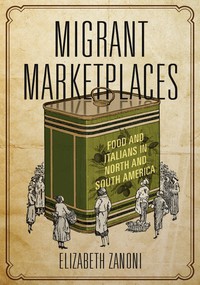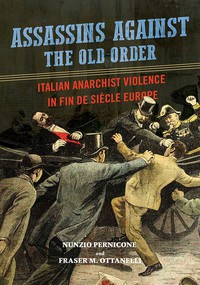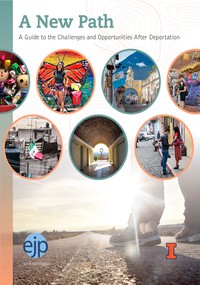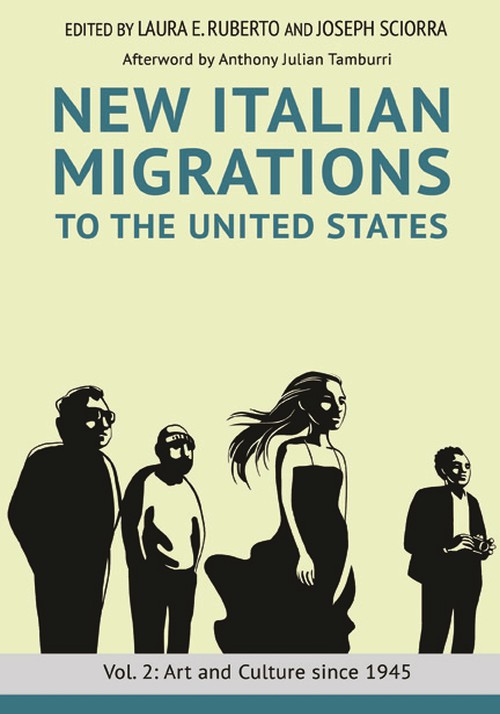
New Italian Migrations to the United States
Cloth: 11/27/2017
About the Book
This second volume of New Italian Migrations to the United States explores the evolution of art and cultural expressions created by and about Italian immigrants and their descendants since 1945. The essays range from an Italian-language radio program that broadcast intimate messages from family members in Italy to the role of immigrant cookbook writers in crafting a fashionable Italian food culture. Other works look at how exoticized actresses like Sophia Loren and Pier Angeli helped shape a glamorous Italian style out of images of desperate postwar poverty; overlooked forms of brain drain; the connections between countries old and new in the works of Michigan self-taught artist Silvio Barile; and folk revival performer Alessandra Belloni's reinterpretation of tarantella dance and music for Italian American women. In the afterword, Anthony Julian Tamburri discusses the nomenclature ascribed to Italian American creative writers living in Italy and the United States.Contributors: John Allan Cicala, Simone Cinotto, Teresa Fiore, Incoronata (Nadia) Inserra, Laura E. Ruberto, Joseph Sciorra, and Anthony Julian Tamburri.
About the Author
Laura E. Ruberto is a professor of humanities in the Arts and Cultural Studies Department at Berkeley City College. She is the author of Gramsci, Migration, and the Representation of Women’s Work in Italy and the U.S. Joseph Sciorra is the director for Academic and Cultural Programs at the John D. Calandra Italian American Institute, Queens College, CUNY. He is the author of Built with Faith: Italian American Imagination and Catholic Material Culture in New York City. They are coeditors of New Italian Migrations to the United States, Volume 1: Politics and History since 1945.Also by this author
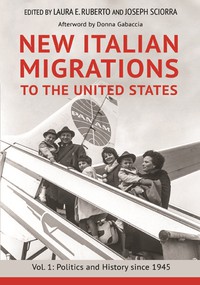
Reviews
"New Italian Migrations to the United States contributes to the growth of academic knowledge regarding the general knowledge of Italian-Americans." --i-Italy"Editors Ruberto and Sciorra have provided an excellent resource for both students and researchers of Italian-American Studies, and of Italian Americans, whether referring to the "imaginary Italians" to whom the volume is dedicated, or the "real Italians" who grace its pages." --Quaderni d'italianistica
"The volume, as a whole, is a pleasant read and a welcomed new and forward-looking perspective on Italian migration. " --Italica
Blurbs
"Laura E. Ruberto and Joseph Sciorra have constellated exacting, often revelatory treatments of the 'rebooting of Italian America' from 1945 to present: radio-conducted familial intimacies, an iconography of luscious Italian female beauty, the U.S. conquests of Italian cuisine, the brain drain of Italian elites into the American academy, and more. Volume two of New Italian Migrations to the United States is of timely value not only to Italian Americanists but to all scholars of late-century cultural flows, which turn out to be globally incorporative and transformatively procreative not despite but because they are ethnic specific and mass-mediated."--Thomas J. Ferraro, author of Feeling Italian: The Art of Ethnicity in America
"Carefully grounding their analyses in the historical and socio-political contexts of the Italian diasporic exodus to the United Studies, the anthology’s contributors examine the cultural work by and about Italian immigrants from 1945 to the present. In six engaging essays, they establish the critical vocabulary needed to chart the range of expressive forms that are forging contemporary Italian American identities across arts, media and communities while testifying to the on-going vitality and impact of Italian Americana for the globalized world of the twenty-first century."--Norma Bouchard, coauthor of Italy and the Mediterranean: Words, Sounds, and Images of the Post-Cold War Era
"The importance of this collection lies not merely in its historical testimony to the centrality of migration in the making of modernity and the contemporary United States, but also, and most profoundly, in drawing us into the multiple threads deeply woven into the artistic and cultural understandings of a world always unwilling to recognize the profound injustices on which it continues to base its authority."--Iain Chambers, author of Mediterranean Crossings: The Politics of an Interrupted Modernity
